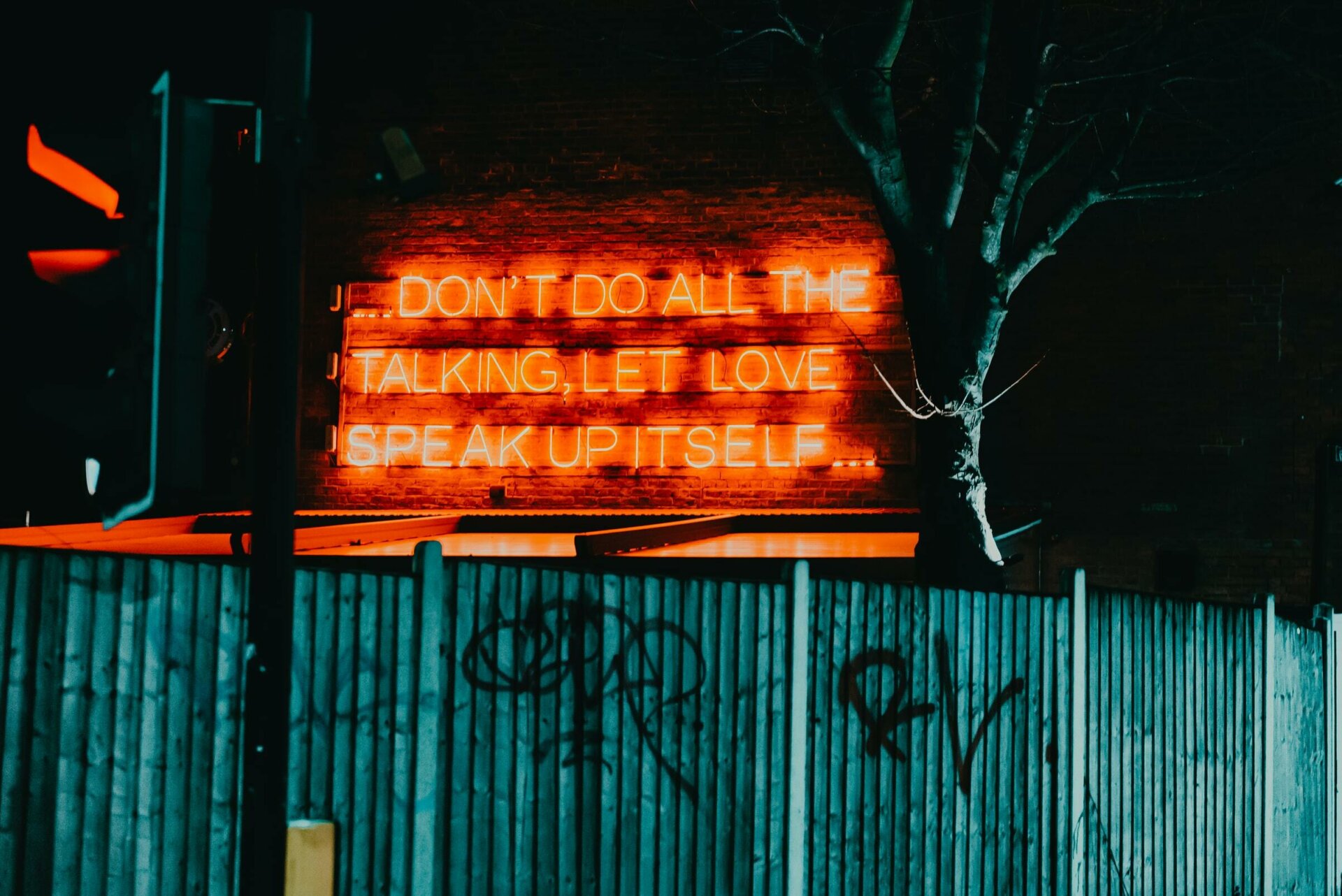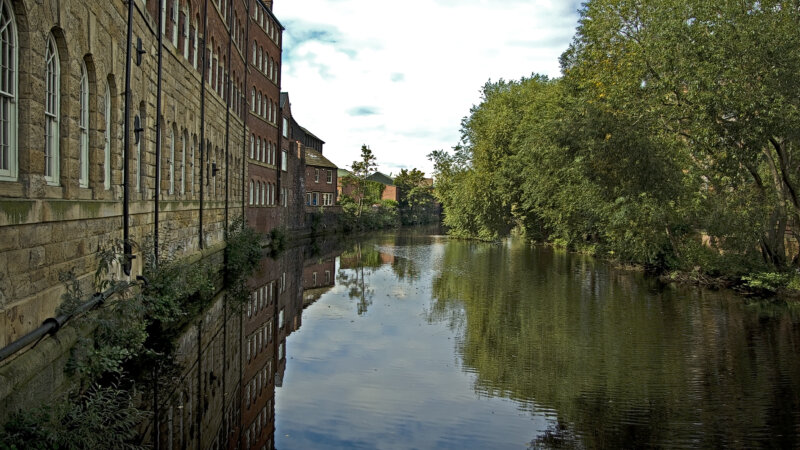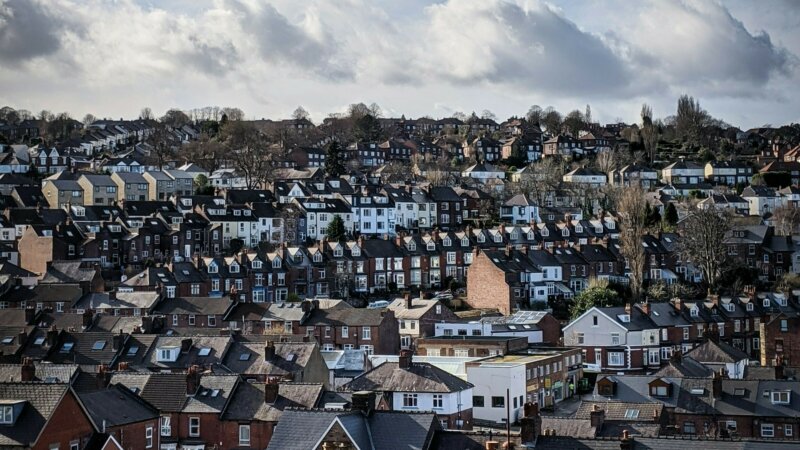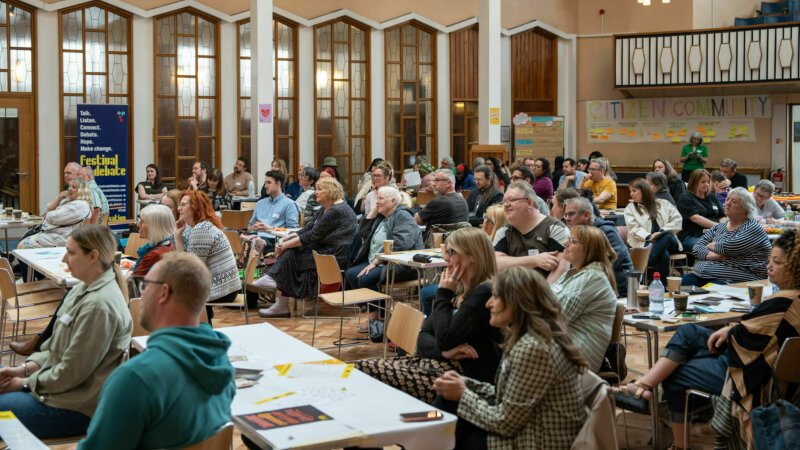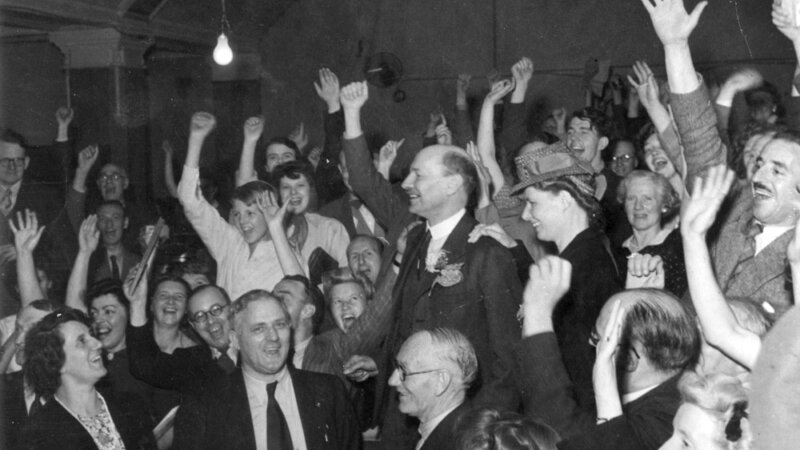It’s Our Community: A New Vision for Social Care
Ahead of a major social care conference in Sheffield, Simon Duffy from the Centre for Welfare Reform makes the case for a system that is rights-based, people-powered and truly local.
Unless you receive a social care service or you work in the field, you may not know what social care is.
It’s the forgotten public service, it’s vital and it should be at the heart of community life. Here are just a few of the things that social care is meant to do.
Help families to thrive - Social care is meant to help families, especially if they start to struggle. Social care is meant to spot problems, safeguard children, protect women, support the fostering and adoption of our children, and ensure they prosper and thrive in care and afterwards.
Help disabled people live great lives - Social care is meant to provide children and adults with disabilities, mental health problems or chronic illness to get all the support they need to develop, be independent, make friends, find work, learn skills, get a home and get the chance to live full lives as contributing citizens.
Help us grow old - Not just with dignity, but with all our human rights intact. Social care is meant to help us stay safe as we grow older, but also to stay active, enjoy life and be connected as a vital part of our family life.
But how is social care meant to do all of these vitally important things? Even at the best of times this doesn’t look like a very achievable job description and 2021 is not the best of times.
Social care is subject to severe means testing. If you have even a modest income or savings you will not qualify for social care or you will have to pay hefty charges to your local council. As Richard Titmuss said, “A service for the poor is a poor service.”
This truth can be seen everywhere in social care. Social services always lags behind all the other public services and this was accelerated in 2010. The largest cuts in spending were targeted at local government, and social care is by far the largest service provided by local government.
It might not surprise you to hear that social care has also been damaged by privatisation. Private investors have purchased residential care services and are squeezing them dry, sucking resources out of local communities. Salaries for social care workers are stuck at rock-bottom and staff often have to get top-ups through the awful Universal Credit system.
Social care has also been subject to ongoing mismanagement by Whitehall. Social workers have been divided into children and adults social workers, creating all the confusion and loss of leadership you would expect. Adult social care is expected to integrate itself into the NHS, while children’s social care is expected to integrate itself into education.
Social workers are one of the most stigmatised professions and politicians have treated them accordingly. The fact that, despite all the above, there are so many brilliant and dedicated social workers and social care workers is testimony to the basic goodness of human beings.
But there’s another problem, which is much bigger than the economic or managerial issues faced by social care. The real problem is that social care - as a public service - is impossible.
It’s impossible because active citizens, strong families and welcoming communities are not created by public services; they are created by citizens, families and communities. Good public services can really help, but most of the work is done by others. Just to take a few examples:
Who is in control? If you want people to be able to be able to thrive, solve problems and take care of each other then people need rights, resources and agency. Putting people into services, taking them out of their community or making decisions for them doesn’t help. Disabled people have been fighting for this right to independence for at least five decades. The social care system is still deeply paternalistic.
What counts as good support? For many people it’s not professionals who provide the best kind of help; it’s our family, our friends or our peers, people who have gone through what you are going through. It’s our long-term relationships that help us be strong, but often the response to problems in social care is to detach people from their communities and place them in institutional services, far from their homes, families and neighbours.
Where should we get support? If we want thriving and inclusive local communities, neighbourliness and a sense of belonging, surely we need to start with our streets and neighbourhoods. You can’t create community for a city of half a million people by sitting inside a city centre office block. Social care needs to be truly local, an active force in every neighbourhood and part of local community action, led by citizens themselves. We have at least 142 neighbourhoods in Sheffield. We need social care to be an active reality in every single one of them.
Is this an impossible vision?
I believe Sheffield can lead the way in transforming itself into a different kind of city, one where neighbourhoods are lively sources of support, where people take care of each other and where people have real rights and agency. And I am not alone.
We have a major conference coming up soon where we will outline a new vision for social care in Sheffield. Developed by local disabled people and other experts in social care, we believe it’s time for a radical, progressive vision for social care; rights-based, people-powered and truly local.
Come and join us.


